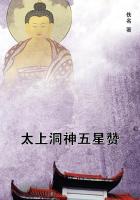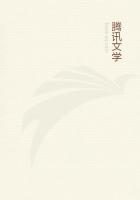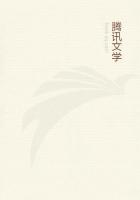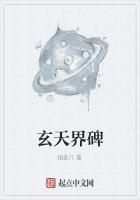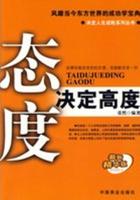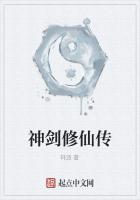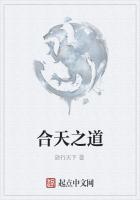SOCRATES: But how could we live in safety with so many crazy people?
Should we not long since have paid the penalty at their hands, and have been struck and beaten and endured every other form of ill-usage which madmen are wont to inflict? Consider, my dear friend: may it not be quite otherwise?
ALCIBIADES: Why, Socrates, how is that possible? I must have been mistaken.
SOCRATES: So it seems to me. But perhaps we may consider the matter thus:--ALCIBIADES: How?
SOCRATES: I will tell you. We think that some are sick; do we not?
ALCIBIADES: Yes.
SOCRATES: And must every sick person either have the gout, or be in a fever, or suffer from ophthalmia? Or do you believe that a man may labour under some other disease, even although he has none of these complaints?
Surely, they are not the only maladies which exist?
ALCIBIADES: Certainly not.
SOCRATES: And is every kind of ophthalmia a disease?
ALCIBIADES: Yes.
SOCRATES: And every disease ophthalmia?
ALCIBIADES: Surely not. But I scarcely understand what I mean myself.
SOCRATES: Perhaps, if you give me your best attention, 'two of us' looking together, we may find what we seek.
ALCIBIADES: I am attending, Socrates, to the best of my power.
SOCRATES: We are agreed, then, that every form of ophthalmia is a disease, but not every disease ophthalmia?
ALCIBIADES: We are.
SOCRATES: And so far we seem to be right. For every one who suffers from a fever is sick; but the sick, I conceive, do not all have fever or gout or ophthalmia, although each of these is a disease, which, according to those whom we call physicians, may require a different treatment. They are not all alike, nor do they produce the same result, but each has its own effect, and yet they are all diseases. May we not take an illustration from the artizans?
ALCIBIADES: Certainly.
SOCRATES: There are cobblers and carpenters and sculptors and others of all sorts and kinds, whom we need not stop to enumerate. All have their distinct employments and all are workmen, although they are not all of them cobblers or carpenters or sculptors.
ALCIBIADES: No, indeed.
SOCRATES: And in like manner men differ in regard to want of sense. Those who are most out of their wits we call 'madmen,' while we term those who are less far gone 'stupid' or 'idiotic,' or, if we prefer gentler language, describe them as 'romantic' or '******-minded,' or, again, as 'innocent' or 'inexperienced' or 'foolish.' You may even find other names, if you seek for them; but by all of them lack of sense is intended. They only differ as one art appeared to us to differ from another or one disease from another. Or what is your opinion?
ALCIBIADES: I agree with you.
SOCRATES: Then let us return to the point at which we digressed. We said at first that we should have to consider who were the wise and who the foolish. For we acknowledged that there are these two classes? Did we not?
ALCIBIADES: To be sure.
SOCRATES: And you regard those as sensible who know what ought to be done or said?
ALCIBIADES: Yes.
SOCRATES: The senseless are those who do not know this?
ALCIBIADES: True.
SOCRATES: The latter will say or do what they ought not without their own knowledge?
ALCIBIADES: Exactly.
SOCRATES: Oedipus, as I was saying, Alcibiades, was a person of this sort.
And even now-a-days you will find many who (have offered inauspicious prayers), although, unlike him, they were not in anger nor thought that they were asking evil. He neither sought, nor supposed that he sought for good, but others have had quite the contrary notion. I believe that if the God whom you are about to consult should appear to you, and, in anticipation of your request, enquired whether you would be contented to become tyrant of Athens, and if this seemed in your eyes a small and mean thing, should add to it the dominion of all Hellas; and seeing that even then you would not be satisfied unless you were ruler of the whole of Europe, should promise, not only that, but, if you so desired, should proclaim to all mankind in one and the same day that Alcibiades, son of Cleinias, was tyrant:--in such a case, I imagine, you would depart full of joy, as one who had obtained the greatest of goods.
ALCIBIADES: And not only I, Socrates, but any one else who should meet with such luck.
SOCRATES: Yet you would not accept the dominion and lordship of all the Hellenes and all the barbarians in exchange for your life?
ALCIBIADES: Certainly not: for then what use could I make of them?
SOCRATES: And would you accept them if you were likely to use them to a bad and mischievous end?
ALCIBIADES: I would not.
SOCRATES: You see that it is not safe for a man either rashly to accept whatever is offered him, or himself to request a thing, if he is likely to suffer thereby or immediately to lose his life. And yet we could tell of many who, having long desired and diligently laboured to obtain a tyranny, thinking that thus they would procure an advantage, have nevertheless fallen victims to designing enemies. You must have heard of what happened only the other day, how Archelaus of Macedonia was slain by his beloved (compare Aristotle, Pol.), whose love for the tyranny was not less than that of Archelaus for him. The tyrannicide expected by his crime to become tyrant and afterwards to have a happy life; but when he had held the tyranny three or four days, he was in his turn conspired against and slain.

